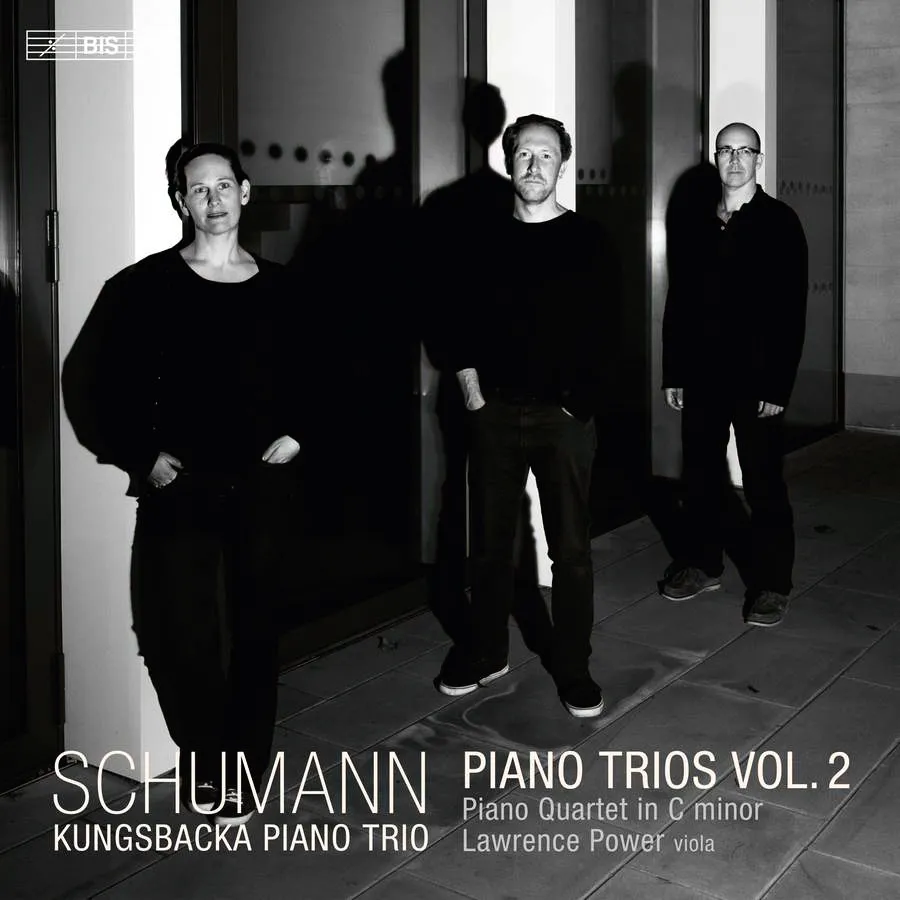
R Schumann Piano Trios, Vol. 2: No. 3 in G minor; Six Studies in Canonic Form (arr. trio); Piano Quartet in C minor, WoO 32* Kungsbacka Piano Trio; *Lawrence Power (viola) BIS BIS-2477 (CD/SACD) 77:58 mins
Late works by Robert Schumann often have a bad press, as if they are assumed to reflect his mental illness. This is particularly unfair as regards the Piano Trio No. 3, easily as filled with inspiration as the earlier two. Clara Schumann wrote: ‘It is increasingly passionate, especially the scherzo, which carries one along with it into the wildest depths.’
The Six Canonic Studies are problematic for other reasons. One is their deceptively academic-sounding title. Following a serious breakdown in Dresden, Robert, together with Clara, had set about an intensive study of counterpoint: this set of gems was one result. The trio version (they were originally for pedal-piano) beautifully brings out both the contrapuntal voices and the lyricism of Schumann’s melodies.
The Piano Quartet in C minor is his first chamber work, composed in 1828 while he was a law student at Leipzig. Having formed a piano quartet with friends, he was writing this piece to play with them when he heard of Schubert’s death. While not matching the level of his mature works, it’s a fascinating curio and the Kungsbacka Trio and Lawrence Power give it their all. Indeed, they perform all three works with such intensity that we can’t help but be carried away. That intensity occasionally leads to moments of forced tone, but with warm recorded sound and such committed accounts it’s a terrific listen.
Jessica Duchen


